In so many ways, social media has revolutionized how we communicate and interact with each other. In the best cases, social media connects us with people in our community and globally like we never could’ve imagined. But social media can play a difficult role in your recovery.
Social Media and Recovery
The internet is often the first place younger generations look for support and to reduce loneliness. Many people who struggle with substance abuse or alcoholism suffer in isolation, especially when feeling grief, shame, and guilt. Even if they have all the resources to process those feelings in a healthy way, we all have days when life is overwhelming, and our ability to cope is compromised.
Social media hosts a variety of forums and platforms where people in recovery can find support. Some examples are the Beachcomber Delray Facebook or Instagram page, Reddit’s /r/stopdrinking support group, online AA and other 12-step forums, an app called Social Grid, and #soberliving on Instagram.
While online activity shouldn’t replace quality in-person interactions, a supportive online community can offer the opportunity to talk with people who understand where you’ve been and where you want to go. These forums can help you develop a larger support network, brainstorm on better ways to deal with triggers, and celebrate milestones of sobriety with people who get it.
Things to Look Out for on Social Media
Undoubtedly, you need to be careful how you decide to use social media, especially if you are new to recovery. Here are a few quick tips:
- Many times, when people meet online over something as significant as recovery, they will eventually want to meet in-person. While this could be the beginning of a wonderful new friendship, it’s important to let someone close to you know about your plans. Always plan a first-meet-up to be in a public place, and take your own transportation if you can.
- Scrolling on social media can be overwhelming for anyone, let alone someone who is in recovery. Social media makes it very easy to compare your life to what others are posting online which can lead to feelings of insecurity, jealousy, and discouragement. You have to remember that social media doesn’t always represent a person’s life accurately or wholly. The truth about recovery is simple: It’s hard. Social media may not make it look that way, but every person in recovery has their own journey, and it’s especially important to avoid comparison.
- Cyberbullying is real and there are some social media users that love to use those platforms to argue and “troll.” Remember that you can choose not to engage in online discussions if they become triggering or are not worth your time to begin with. An argumentative environment may not be supportive to your recovery, and you have to do what is best for you.
- Lastly, social media isn’t for everyone, and that’s okay. Monitor your usage and the feelings you have when engaging in social media. If you have concerns about how it is affecting you, consider doing a digital detox to evaluate if being on social media is right for you during this crucial time in your life.
Remember that non virtual human interaction and learning how to communicate with others in real life is paramount for recovery success, strengthening your support system and adding to your life skills for sobriety.
For more related content visit our addiction voice detox center.

